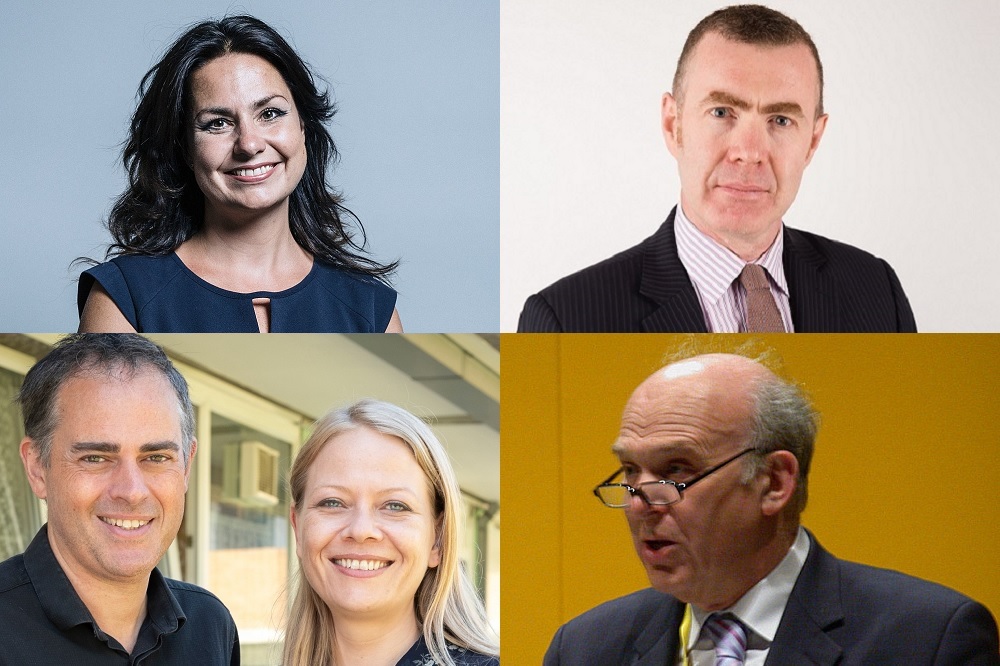Remain parties in Wales will need to work together if there’s a General Election

Patrick O’Brien
The easy conclusion would be that last week’s European election result shows Nigel Farage’s Brexit Party now speaks for most of Wales, after winning in 19 of 22 council areas and taking two of the four seats on offer.
Easy, but wrong.
For Nathan Gill, who leads the party in Wales, the result was, predictably, as clear-cut as if the outcome was about whether night follows day. There wasn’t a shadow of doubt. Wales still wanted to leave the EU, he said. “We are a Brexit nation. We want to leave the EU with a clean Brexit.”
But this was in the grey light of Monday’s chilly dawn as the final results came in. Who knows, perhaps there may by now have been a dawning of doubt.
In fact, assuming the Euro election was taken as a surrogate vote on Brexit, which is the general opinion, a majority in Wales voted last Thursday to stay in the EU, reversing the result of the 2016 referendum.
ChangeUK, the Green Party, Lib Dems and Plaid Cymru (note that’s in alphabetical order), all Remain parties wanting a people’s vote/second referendum, together cornered 42.4 per cent of the vote – 356,745 votes, as against the Brexit Party’s 271,404 and UKIP’s 27,566 (a
combined 35.8 per cent).
That’s a Remain margin bigger than the Wales five per cent Leave majority in 2016. It also chimes with the winning Remain vote in the referendum in a sizeable part of rural Wales – Ceredigion and Gwynedd.
There are so far no Remain-based alliances among any of those parties, and the Brexit Party, as a single-issue grouping, may have no more than a fleeting presence in overall UK politics. But all is in a state of flux.
Turnout – 71.7 per cent in the referendum, 37.1 per cent last week – is another wavering factor, ensuring the reliability of guesswork on the directions a bigger number of voters might take in a second referendum or in a General Election.
For now, it’s pleasing that Wales as a whole shares the insight of Ceredigion and Gwynedd which, in 2016 and again in this poll, signalled their understanding that, among the many strands to the EU debate, the one of greatest importance to most people is the economy, and that all solid forecasts are that, as currently, Wales would be better off in Europe.
Agreement
However, despite winning more votes than the Brexit Party, the Remain parties handed Nigel Farage the illusion of victory at the EU Election by failing to come together as one political force to oppose him.
And while divisions between the Remain parties handed the Brexit Parties two seats in Wales but, there is a real danger that the price could be higher still in a General Election.
Even though they didn’t get close to a majority of the vote, many areas in Wales that voted Remain in 2016, – Cardiff, Monmouthshire and the Vale of Glamorgan – all last week succumbed to the plausible embrace of Nigel Farage.
This points to the current, truly chilling, danger that a general election in the next few months could, just plausibly, put Farage in Downing Street or in coalition with a larger party.
Under Westminster’s First Past the Post electoral system, all the Brexit Party would need to do in these constituencies would be to come first, no matter if less than two in ten voted for them.
And with Remain votes divided among multiple parties, there is a real danger that they could do so.
Plaid Cymru have already called for some kind of agreement if there is a snap General Election. And there are plenty of seats in Wales where one Remain party is competitive but not another.
If Wales is to help head off this portrait of calamity, the Remain parties – or at least most of them – must urgently agree on the necessity of a collaborative partnership aimed at maximising the chances of a Remain faction victory at the next election.
The Remain parties were caught on the hop by the EU Election, but there is no excuse for that to happen again.
Support our Nation today
For the price of a cup of coffee a month you can help us create an independent, not-for-profit, national news service for the people of Wales, by the people of Wales.





